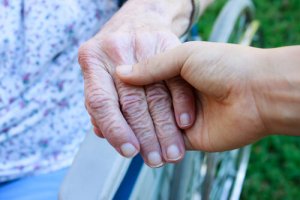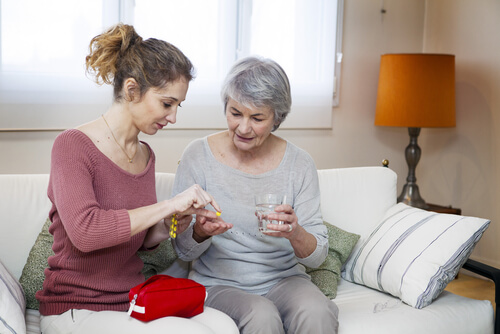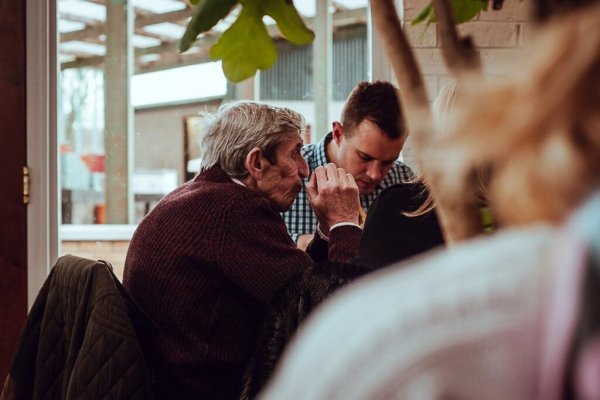Caregiving, And Doing It Well, Isn't Easy

All of a sudden, you find yourself taking on responsibilities you didn’t want. Ones you thought you’d never have to take on.
But you love them, and they’ve given you so much. How could you not take care of them now that they need you?
After all the sacrifices they’ve made to give you a good life… The truth is that you’re getting anxious and frustrated about having to be in this situation. Does it mean you’re a bad daughter or son?
“Assist a man in raising his burden, but do not assist him in laying it down.”
-Pythagoras-
The Stress of Caregiving
Finding yourself engrossed in the task of caregiving for someone who can’t be on their own can mean a ton of stress.
On the one hand, we’re faced with a loved one who’s no longer who they used to be. We see how problems keep popping up. Behavior and memory problems and also physical and mental deterioration.
And so we have to constantly keep an eye on them. We have to control their food intake and personal hygiene.
And all of that might not be exactly pleasant, so we get annoyed at having to do it. So we’ll do it apathetically, and really, just not very well.

And the stress doesn’t stop at just the caregiving. It extends to other areas of our life as well. We may have work problems, money, relationship, or family problems too.
The Costs of Caregiving
An increase in stress can produce emotional, social, and physical problems for the caretaker.
It’s normal for there to be negative emotions like anxiety, anger, or sadness. Or even a sense of guilt for feeling like the situation is too much for us.
Guilty for wanting to be somewhere else that doesn’t involve caregiving. These things clash with our moral obligations to take care of our elders.
“Asking for help in need, even if it’s a little, helps a lot.”
-Mateo Alemán-
On the other hand, it can also undermine our relationships. Whether it be from not having time to be with other people, or by creating conflicts when we take it all out on them. Then the downward spiral really begins.
On the physical level, there are endless issues that might crop up. From various psychophysiological disorders (that is, physical illnesses caused or exacerbated by emotional and psychological factors), to problems related to the the actual act of taking care of someone, like moving them from one place to another.
What Can Help Us Ease The Burden Of Caregiving?
In today’s world there are a lot of people who take care of their elders. Why don’t we all suffer from the psychological, social, and physical problems we’ve looked at?
Because everyone’s resources and situations are enormously different, just like with any other psychological disorder.

Strategies for confronting stress are extremely important to protect us from wearing down. Because it’s not so much what happens, but more what we do and how we face it.
Along that line, wallowing in self-pity about how bad we’re getting it or trying to avoid the situation won’t help us. .
“There’s a wonderful energy that comes when we help someone.”
-Mary Lou Cook-
Instead, looking for the best option and acting on it without being afraid we’ll mess up is more beneficial. You know, who doesn’t make mistakes? And don’t you remember that’s how we learn?
But besides how a person manages the situation, we can’t forget about another big source of help. We’re talking about social support.
Draw on your other relationships, ask for help with different tasks, get understanding and love… it can really ease your burden. Take care of yourself so you can take care of others!
Images courtesy of Jake Thacker, JD Mason and Cathal Mac An Bheatha.
This text is provided for informational purposes only and does not replace consultation with a professional. If in doubt, consult your specialist.








